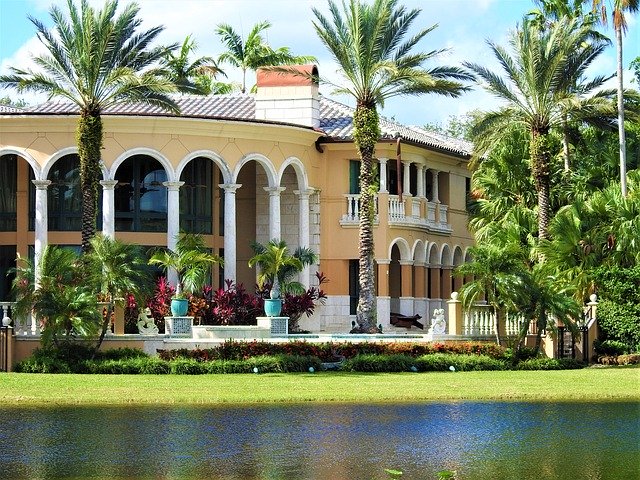Florida Home Insurance: 6 Important Things to Know
My grandparents used to live in Florida. Or rather, they used to winter there. They were snowbirds, quite sensibly keeping away from the state during the summer months, when the chances of a hurricane hitting are highest, and leaving their home in Michigan during the winters there, which are inevitably snowy, icy, and generally bitterly cold.
I loved visiting there when I was a kid, as we too lived in a climate, which was akin to Siberia in winter. Florida’s a great place to live, with its mild winters, sunny weather and beaches, and mild subtropical climate. But owning a house there can be hazardous. Besides hurricanes, other natural
What is Home Insurance?
But first, a brief overview of what homeowner’s insurance is, and why it’s so important. Below you can see the different types of home insurance coverage, along with what they cover. There are, of course, other kinds of coverage that specifically deal with condos, renters, and manufactured homes.
HO-1 Basic Form:
-
Fire, smoke, & explosions
-
Lightning, hail, & windstorms
-
Theft & vandalism
-
Damage from vehicles & aircraft
-
Riots & civil commotion
-
Volcanic eruption
HO-2 Broad Form
-
Falling objects
-
Damage from ice, snow, or sleet
-
Freezing of household systems like AC or heating
-
Abrupt and accidental ripping apart, falling to pieces, smoldering, or swelling of pipes and other systems in the house
-
Accidental emission or excess run-off of water or steam
-
Damage from artificially generated electrical current
-
Personal items
With the HO-3 Special Form and HO-4 Comprehensive Form, there are no lists of what is covered, but what is not. The former lists specific instances for which it does not cover damage, while the latter has a much shorter list. Even so, specific things like floods or earthquakes tend not to be included in the coverage.
Insurance on what for many is their most valuable asset will help you protect it, and Below please find several things to consider when looking into homeowners’ insurance.
1. Cheap Can Be Expensive
Make sure the coverage you need is part of the policy. Paying a lower premium when not covering an important event is foolish. Although policies that pay to replace can be more expensive, about 10% more, you’re likely to get what you pay for. If a destructive event occurs that isn’t covered, you’ll end up paying for it out of pocket.
2. Water is Not Your Friend
Florida’s beaches are pristine, and they’re part of what brings people to the Sunshine State. Hurricane storm surges, however, are no joke, and they can cause incredible damage, even destroying a structure. In Florida, you’ll need flood insurance if you live anywhere near the beach.
3. Neither is Earth
Thousands of people in Florida claim for damages caused by sinkholes. Make sure your policy covers them, as sinkholes are endemic in the state. Florida is not, however, prone to major earthquakes or landslides. That said, since the state lies on the edge of the Caribbean plate, it is not immune to earthquakes. One would think the same about landslides, though they happen in all fifty states. in fact, in 1948 four acres of farmland slid off the plateau in the northwestern part of the state.
4. Nor When the Wind Blows
The wind is a major factor when it comes to damage to houses, and Florida’s hurricanes continue to prove it. Hurricane Andrew in 1992 even changed how houses in Florida are built. Yet improved building standards often can’t stand the full force of a category five storm.
5. What To Cover & What Not To
This mainly depends on what you keep in your house. If you own an expensive art collection or costly jewelry, you may wish to pay a higher premium to protect them against theft or damage. You may also wish to ensure that you have coverage against mold or sinkholes, two things which are all too common in Florida. Coverage for snow or cold-related damage would be considerably less important for Floridians.
6. How to Save & on What
There are a number of ways homeowners can save on their policies without sacrificing the protection of this valuable asset.
Upping your deductible is probably the simplest method, as it keeps you covered from those things that can damage or destroy your home. Even if you have to pay more in the event something happens, you will be thankful you’re not forking out more.
Another way to lower your premiums is by improving your credit score. This can be achieved by simply paying your bills on time, and keeping balances on credit cards low.
One final thing is making your home safe from wind or water. This is especially important for Florida homeowners, who face the threat of hurricanes on an annual basis. Making your roof wind resistant and reinforcing your windows will keep your premiums down. Some insurance companies even offer discounts for those who install water detection systems for basements, in order to mitigate water damage.

